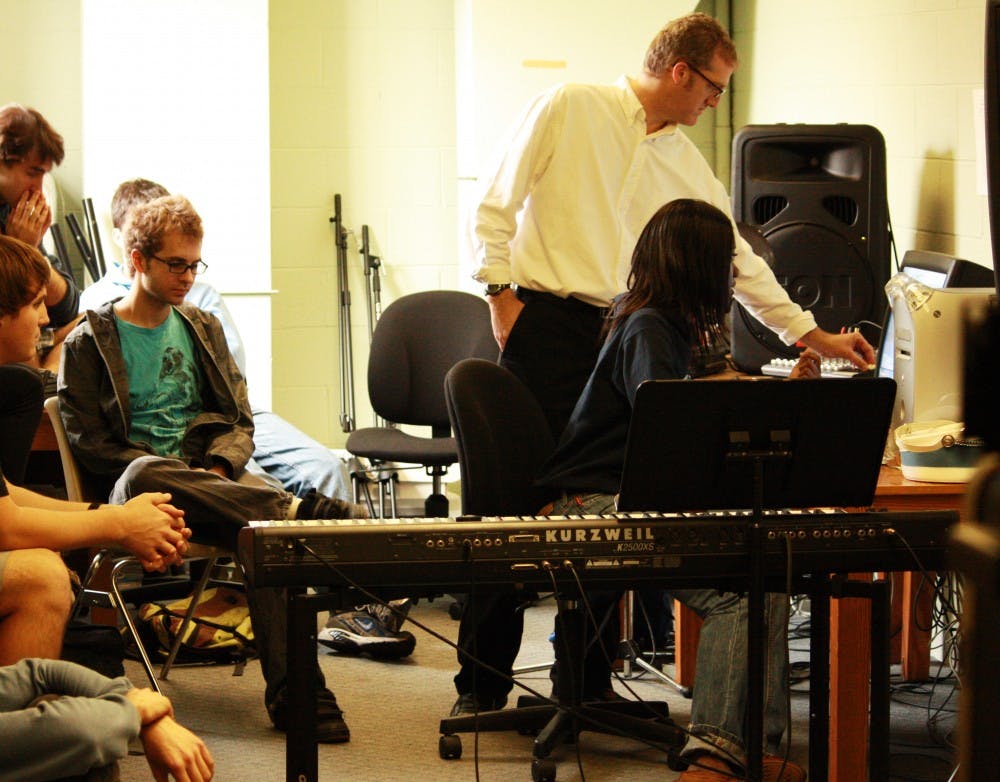A sound both unfamiliar and compelling exudes from Hill Hall.
The four-year-old Electro-Acoustic Studio, tucked upstairs in one of the University’s music buildings, serves as a home for an onslaught of cutting-edge musical exploration.
Allen Anderson, a professor specializing in composition and music theory, said the electro-acoustic genre had been of significant interest in the music department for some time.
“The advantage, in this day and age, is that a lot of stuff can be compressed to a small area, such as a laptop,” Anderson said. “It makes it so that you can produce music essentially anywhere.”
Anderson arrived at the University in the ’90s, when the department was shifting from analog to digital formats to make electronic music more accessible.
Despite the increased accessibility of the digital format, the Electro-Acoustic Studio was not created until 2006.
Stephen Anderson, assistant professor in composition and jazz studies, spearheaded the introduction of the current iteration of electronic music at UNC.
“Anytime somebody new comes into the department who is interested in this form, a certain amount of updating must be done due to the ever-evolving nature of the digital music scene,” Allen Anderson said.
The genre is defined by its experimental nature, Stephen Anderson said. The genre initially had two factions — the French musique concrète and the German elektronische Musik.



